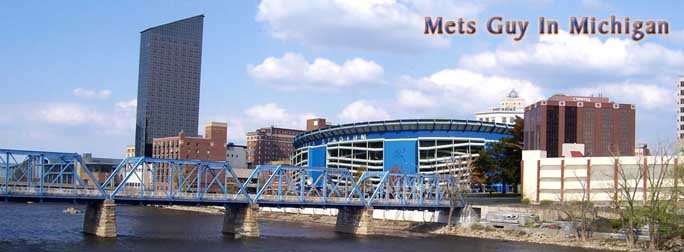
There aren’t many tangible links to the Negro Leagues remaining.
Josh Pahigian takes us to Pittsburgh for some traces of history as spot No. 30 in his “101 Baseball Places to Visit Before You Strike Out.”
But it sounds like anybody making the trip would be disappointed.
There just isn’t much left of the places where Josh Gibson, Cool Papa Bell and Oscar Charleston called home.
West Field in Munhall is dilapidated, but is the most intact, with bleachers, dugouts and locker rooms remaining.
There’s a plaque commemorating Gibson where Ammon Field once stood, and another marking the Crawfords is in front of the Crawford Grill, which has stood since the 1920s and was popular with black musicians and ballplayers.
I’ve never been to a Negro League game, and never sought out any of these plaques. But I have seen people play baseball in Negro League uniforms.
That brings us to:
Alternate place No. 30A: Salutes to Negro Leagues at Tiger Stadium and Comerica Park.
I love it when the Tigers don the uniforms of the Detroit Stars. I’ve three games where the team saluted the Negro Leagues, twice against the Royals wearing Kansas City Monarchs uniforms, and once against the Reds reborn as the Cincinnati Buckeyes.
 Travis Fryman and Sparky Anderson show off their Detroit Stars uniforms.
Travis Fryman and Sparky Anderson show off their Detroit Stars uniforms.
The game on July 8, 1995 stands out, and it’s a little embarrassing. Here’s a tale from the archives.
We were excited because some of the Negro League stars would be on hand to sign autographs. Historic uniforms and free autographs – that’s all good. I have a lot of respect for these players.
I never will be able to imagine how frustrating and hurtful it must have been to be prevented from playing in the Major Leagues because of their race.
 Wally Joyner looked sharp as a member of the Kansas City Monarchs.
Wally Joyner looked sharp as a member of the Kansas City Monarchs.
Will and I arrived early and hopped on the line where Ted “Double Duty” Radcliffe, Lester Lockett and Dennis Biddle were signing; all were in good spirits and sharing stories about their playing days.
There was a woman sitting behind the table, too. Some people were asking for her autograph, which I thought was strange. I didn’t know if she was a player’s wife or an assistant. We made polite small talk while waiting my turn to pass a ball to the next player.
Signatures secured, we slipped down to the field to watch batting practice and snap some photos of the players in their Negro League uniforms.
 I miss Tiger Stadium. What a great plce to see a game.
I miss Tiger Stadium. What a great plce to see a game.
One of things I enjoyed most about old Tiger Stadium was that you could get right down near the field.
Before long, “Double Duty” then 93, was brought on to the field for some television interviews.
 Ted "Double Duty" Radcliffe was 93 at the time.
Ted "Double Duty" Radcliffe was 93 at the time.
Before the game, the Tigers brought each of the Negro Leaguers out on the field, and I noticed the woman walked out with the rest.
The Tigers announcer introduced her as Mamie “Peanut” Johnson, one of three women to play in the Negro Leagues in the 1950s.
Will looked over and said “Oops!”I was deeply embarrassed, exposed as both ignorant and sexist in one swoop.
Later I did the research. Johnson -- a right-handed pitcher -- and teammates Toni Stone and Connie Morgan played for the Indianapolis Clowns. Johnson posted a 33-8 record and credits Satchel Paige with helping her with her curve ball.
She was called "Peanut" after Monarchs third baseman Hank Bayliss came to bat against her and called out “You're nothing but a peanut!” Johnson struck him out and the name stuck.
Remember that scene in “A League of Their Own” when the black woman picks up and overthrown ball and whips it back on to the field? That’s a tribute to Johnson, who was turned away from a tryout when All American Girls Professional Baseball League would not allow black women to play in the all-white league.
Johnson taught me a lesson that day, and she’s still teaching, speaking about Negro League history around the country.The other players I met that day also have interesting stories.
Radcliffe got his nickname in the 1932 Negro League World Series, when he caught Paige in the first game of a doubleheader, then pitched a shutout in the second game.
Biddle, who pitched for the Chicago American Giants, tied Bob Feller’s record of winning five games as a 17-year-old in 1953, turned 18 and won 10 more. He injured his arm and was out of the game by 19. Today he is an executive with the Helmar Brewing Company.
Lockett played during the 1930s and 1940s with the Birmingham Black Barons, Philadelphia Stars, Cincinnati Clowns, Chicago American Giants and the Baltimore Elite Giants, hitting more than .400 twice.
I humbly apologize to Mrs. Johnson, and if I ever have the opportunity I’d be honored to have her sign my Negro leagues ball.


No comments:
Post a Comment